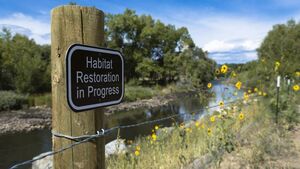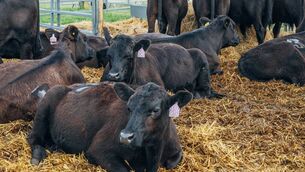Farmers must be fairly paid in nature restoration plans

While the Leaders' Forum on Nature Restoration was a positive first step in the development of our national Nature Restoration Plan, key concerns remain about how farmers will be treated in the process, according to the ICSA.
ICSA Rural Development chair Edmond Phelan has insisted that fair payment for farmers must be a core principle of Ireland’s Nature Restoration Plan.
“If farmers are expected to take land out of production, they must be properly paid for doing so - and on an ongoing basis," Mr Phelan said.
"Nature restoration is not a short-term initiative; it has lasting consequences for generations, and payments will have to reflect that. Short-term schemes like ACRES, which only provide temporary support, will not be enough.”
Commenting on the Leaders’ Forum on Nature Restoration, which he attended recently in Dublin, Mr Phelan said that while the forum was a positive first step in the development of our national Nature Restoration Plan, key concerns remain about how farmers will be treated in the process.
“For the most part, attendees recognised that if farmers are asked to take land out of production, they must be adequately paid. However, farmer representatives were outnumbered on the day by environmental and other NGOs.
"This raises questions about whose interests will ultimately shape the plan and whether farmers will be fairly treated.”
Mr Phelan said there was also growing scepticism among farmers about the voluntary nature of the Nature Restoration Law.
“While the government has given assurances that all activities will be voluntary, many farmers worry that if targets are not met by 2030, pressure will mount to impose compulsory measures.
"We need firm guarantees that farmers will not be coerced into land-use changes in the future to meet targets that may prove unrealistic. There is also a real concern around how farmland surrounding rewetted lands could be affected, and these farmers certainly haven’t volunteered to be adversely affected.”
He added that how farmers and foresters are treated in the aftermath of Storm Éowyn will serve as a crucial test of the government’s commitment to supporting them through nature restoration efforts.
“How the government responds to the aftermath of the storm, and the devastation it caused to so many forests, will be a strong indicator of their willingness to stand by farmers in the long term. I am also concerned that when the true cost of the plan becomes clear, there is a risk that it will be watered down or pushed onto the political back burner, particularly given the shifting political landscape in Europe and the US.”
Concluding, Mr Phelan said, “If we go back to first principles, agriculture was forced to intensify due to an unrelenting drive for cheaper food. Farmers had to drive up output because of declining margins - it was a race to the bottom, dictated by policymakers, not farmers. In this era of nature restoration, we must also acknowledge that the era of cheap food is over."






